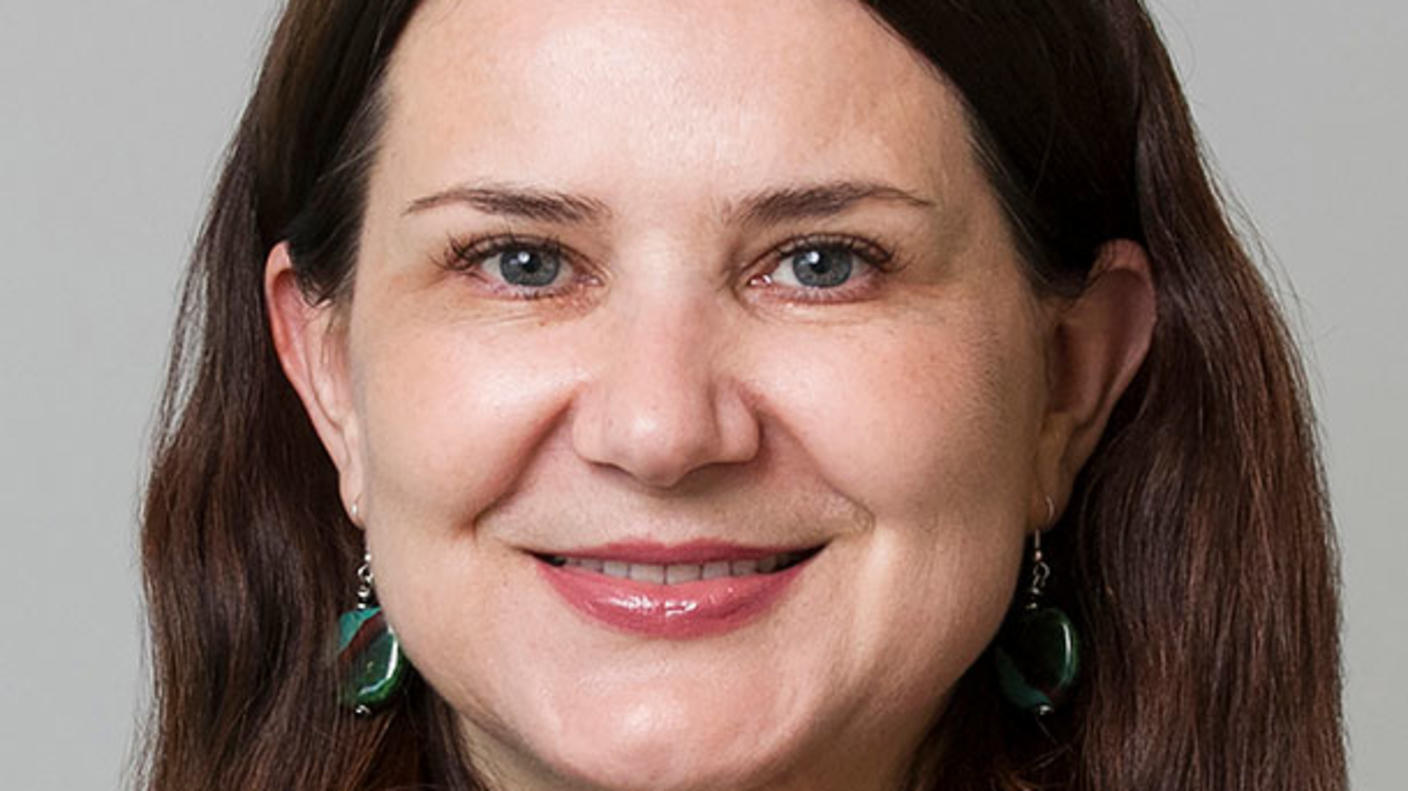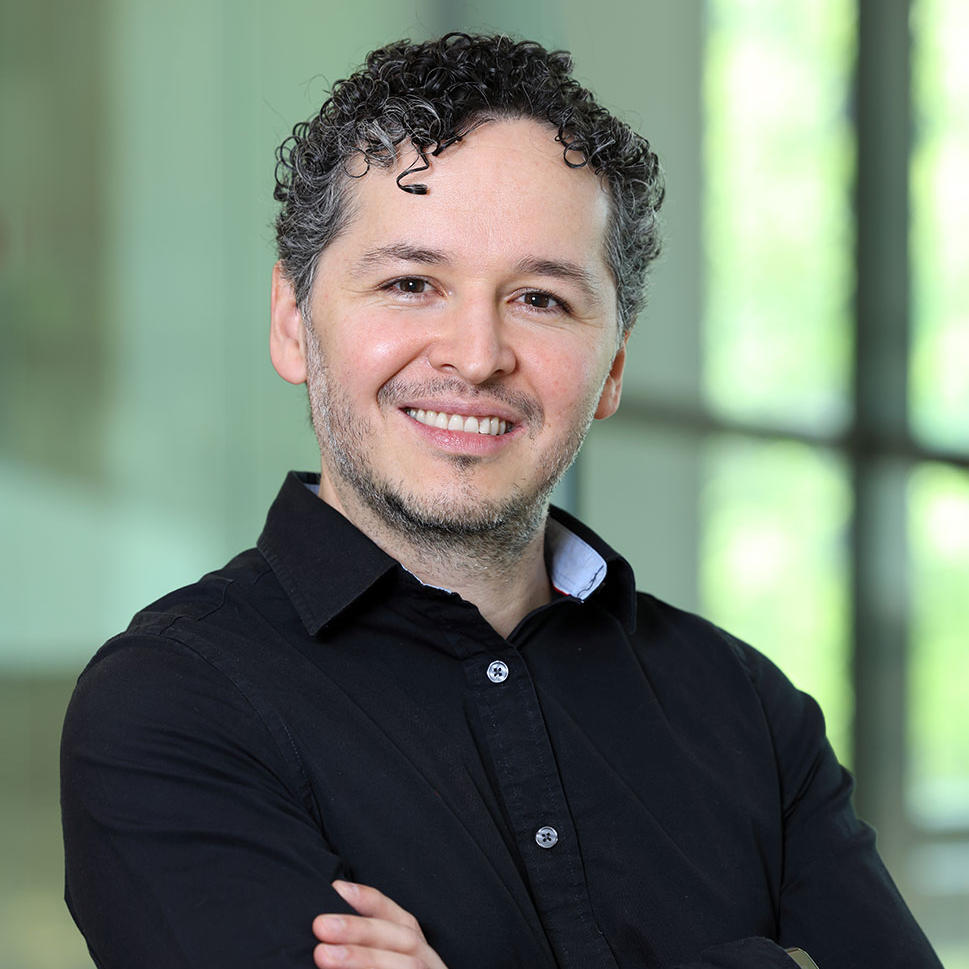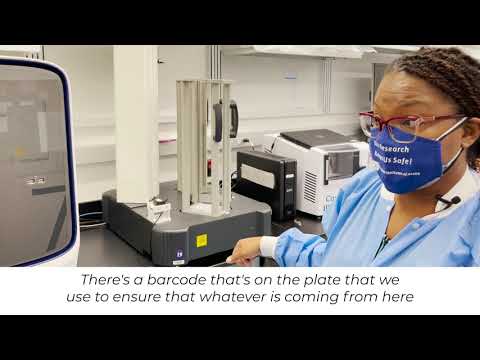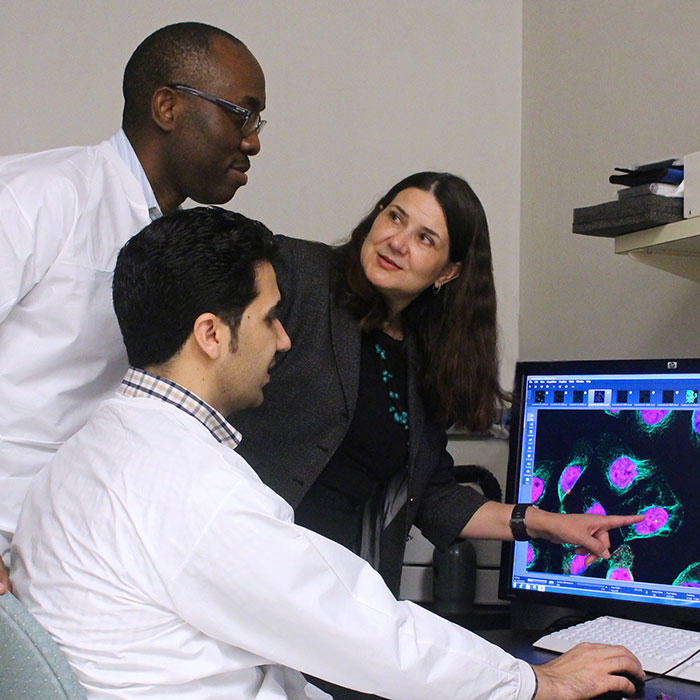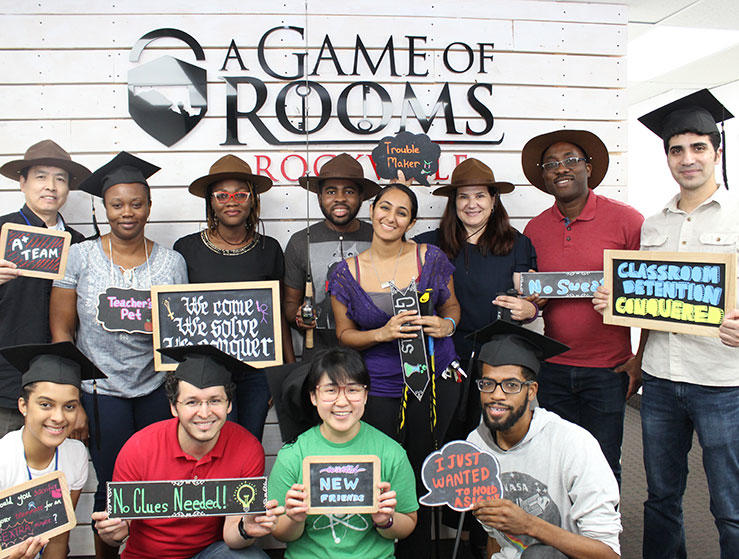Research Focus
Recent genome-wide association studies (GWAS) have identified multiple common germline genetic susceptibility variants that may play a role in a variety of human diseases and outcomes. The Prokunina-Olsson Laboratory explores the connections between GWAS-identified genetic susceptibility variants and molecular phenotypes of importance for cancer. Some findings have resulted in translational and clinical applications.
Exploring the Genetics of Bladder Cancer
Several GWAS for bladder cancer risk in individuals of European ancestry discovered multiple genomic regions with statistically significant associations. In addition to contributing to GWAS efforts, members of the Prokunina-Olsson Lab perform post-GWAS analyses that include genetic fine-mapping and functional molecular analysis of the candidate genetic variants and genes. In addition to bioinformatics tools, the lab uses a wide range of experimental tools to explore both coding and non-coding genetic variants, such as DNA and RNA sequencing, genotyping, RNA and protein expression, DNA-protein interaction analysis, genome editing, cell culture, epigenetic studies, etc. They are also exploring the regulation of somatic mutagenesis in bladder tumors by germline variants and environmental factors.
Genetics of Infection and Cancer
Dr. Prokunina-Olsson’s lab has discovered a novel human interferon, IFN-λ4, by performing a follow-up of GWAS findings for clearance of hepatitis C virus (HCV) infection.
In response to COVID-19 epidemic, Dr. Prokunina-Olsson’s lab explored ACE2, the receptor for SARS-CoV-2 and discovered a novel isoform of this gene, designated as dACE2. Only dACE2 but not ACE2 was induced by interferon-high conditions, including viral infections and treatments, but only ACE2 was functional in supporting SARS-CoV-2 infection. dACE2 was found expressed in multiple tumors of squamous origin. These findings provided important insights on COVID-19 etiology and molecular epidemiology, treatment options and outcomes. In addition, Dr. Prokunina-Olsson's lab explored the relation of variation in OAS1 with COVID-19 severity.
Prokunina-Olsson Lab Members
The team is made up of fellows and staff from diverse backgrounds and experience encompassing experimental and computational specialties. Lab members closely collaborate with each other as well as members of LTG and outside collaborators. Fellows of all stages have opportunities to be trained and mentored within the lab and through the collegial environment at LTG while striving to achieve their research goals.
Scientific Staff
Current Fellows
Michelle Ho, Ph.D., Postdoctoral Fellow
Brenen Papenberg, Ph.D., Postdoctoral Fellow
Former Fellows
Atuahene Adu-Gyamfi, B.S., Postbaccalaureate Fellow, iCure Scholar
Life in the Lab
Labs are all about collaboration. Working together, the team keeps science moving forward, utilizing new tools and approaches--even when working remotely.
Prokunina-Olsson Lab Alumni
Over the years, fellows working in Dr. Prokunina-Olsson's lab have progressed in their careers. Former postdoctoral fellows have moved upward in DCEG or elsewhere in NIH, while most postbaccalaureate fellows moved on to graduate and/or medical school. Alumni include:
Staff Scientists:
- Olusegun Onabajo
Postdoctoral Fellows:
- Yi-Ping Fu
- Indu Kohaar
- Wei Tang
- Candace Middlebrooks
- Fang Wang
Postbaccalaureate Fellows:
- Allison Burrell
- McAnthony Tarway
- Juan Arhancet
- Brian Muchmore
- Adam Mumy
- Dianna Hergott
- Nathan Brand
- Luyang Liu
- Ashley Paquin
- Nina Rao
- Krizia-Ivana Udquim
- Ariunaa Bayanjargal
- Seraph Han-Yin Lin
- Joselin Vargas
- Eniko Kiss
- Timothy Ring
- Francine S. Baker
Select Recent Publications
Genome-wide association study of bladder cancer reveals new biological and translational insights. Eur Urol. 2023.
Genetic regulation of OAS1 nonsense-mediated decay underlies association with COVID-19 hospitalization in patients of European and African ancestries. Nature Genet 2022.
Interferons and viruses induce a novel truncated ACE2 isoform and not the full-length SARS-CoV-2 receptor. Nat Genet 2020.
Association of donor IFNL4 genotype and non-relapse mortality after unrelated donor myeloablative haematopoietic stem-cell transplantation for acute leukaemia: A retrospective cohort study. Lancet Haematol 2020.
APOBEC-mediated mutagenesis as a likely cause of FGFR3 S249C mutation over-representation in bladder cancer. Eur Urol 2019.
IFNL4-ΔG allele is associated with an interferon signature in tumors and survival of African-American men with prostate cancer. Clin Cancer Res 2018.
Association of germline variants in the APOBEC3 region with cancer risk and enrichment with APOBEC-signature mutations in tumors. Nat Genet 2016.
Scientific Publications (all)
